Do you teach reading in preschool? If you’ve found yourself here I’m certain you teach your preschoolers how to read in one form or another, and you’re probably looking for some tips for teaching reading to preschoolers.
Whether you read bedtime stories to your preschooler or you are a reading specialist in an elementary school, you are teaching your child to read. Here are five tips for teaching reading to your preschooler from a veteran teacher.
Tips for Teaching Reading to Preschoolers
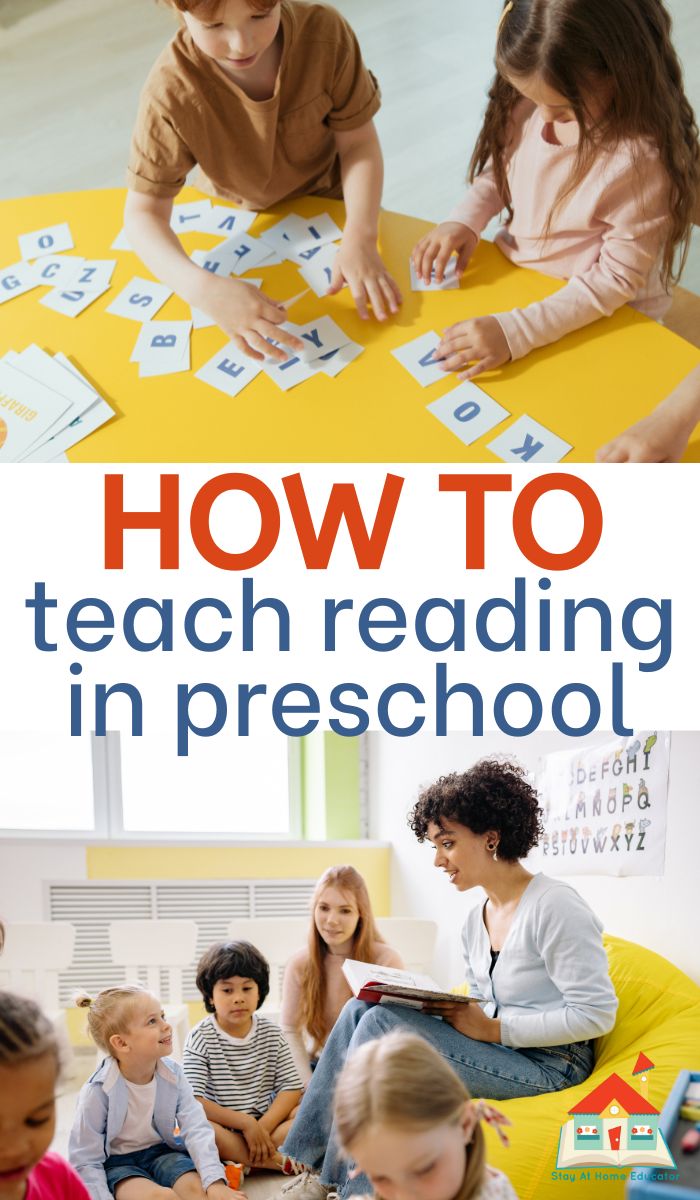
There is a lot that goes into teaching reading to preschoolers.
Hold on a minute…I know what you are thinking. Teaching reading to preschoolers isn’t developmentally appropriate!
But I did say that there is a lot that goes into teaching reading. It’s more than just letters and sounds.
Early reading skills begin in infancy since reading is language, and language development begins at birth.
Related Reading
The Four Components of Reading in Preschool
There are four components to teaching reading to preschoolers. I’ve written about them here: The “Big Four” of Preschool Literacy Instruction.
But you may be asking how to put all those components together to teach your preschooler how to read. Let me share with your my top tips for teaching reading to preschoolers.
How to Teach Preschoolers to Read
Now, teaching reading really is a complex process, but in preschool, it doesn’t have to be. There are so many resources available to help you give your child the very best start in learning how to read.
Here are five amazing tips for teaching reading to preschoolers!
1. Select Developmentally Appropriate Activities
When teaching reading to preschoolers, activities must be developmentally appropriate.
That means you are not trying to engage your child in an activity that is above their scope of learning. Just like you wouldn’t expect a toddler to adequately and appropriately use a fork before picking up foods with his fingers, you wouldn’t expect a child learning to read to be able to interchange sounds in a word before being able to recognize those individual sounds.
This is one of the best parts of the Daily Lessons in Preschool Literacy Curriculum. Each component is designed to use effective teaching strategies that are age appropriate. The lessons are systematic and sequenced, so each day builds upon what the child practiced the previous day.
And the activities are so fun! They include music and gross motor games.
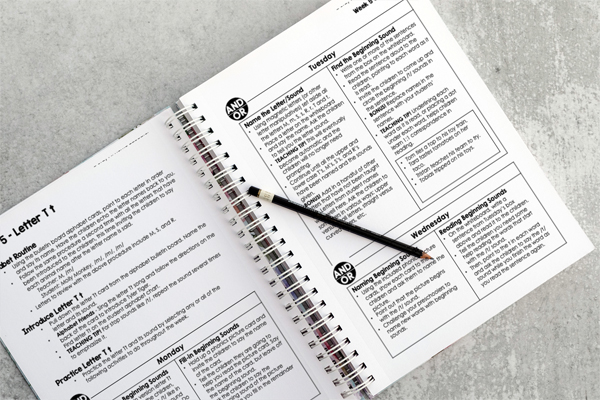
2. Build Stamina Gradually
Reading takes a lot of work on the child’s part, not just the teacher. The brain has to work. And work hard.
Did you know that three different parts of the brain have to simultaneously be activated just to read a single three-letter word? So when preschoolers are learning to read, they have to take their literacy instruction in small doses. It’s not just an attention thing, it’s the fact that their brain gets fatigued.
The Daily Lessons in Preschool Literacy Curriculum was designed with preschoolers in mind. While kindergarten interventionists can use this as a supplemental reading program for children who are struggling with decoding skills or reading comprehension, this is a preschool literacy curriculum designed for young children ages 3-5 years old.
Activities are short, but impactful.
3. Be Picky About the Resources You Use
Let’s face it, not all reading resources are created equal.
Not only are there multiple approaches to teaching reading to preschoolers, but some resources are much more complete and developmentally appropriate than others. It’s important to do your research and to not settle for less than what is best for your child.
The Daily Lessons in Preschool Literacy Curriculum is designed to equip early learners with all the right skills that will prepare them for reading — when it comes time. This comprehensive preschool literacy curriculum makes teaching pre-reading skills in your classroom or homeschool is engaging, low-prep, and effective.
These daily lessons take the guesswork out of teaching preschool literacy because we did the research for you.
When you get these year-long lesson plans with our systematic sequence of skill progression, every literacy lesson you teach, builds upon what you’ve previously taught, so students feel successful and confident each day they’re with you.
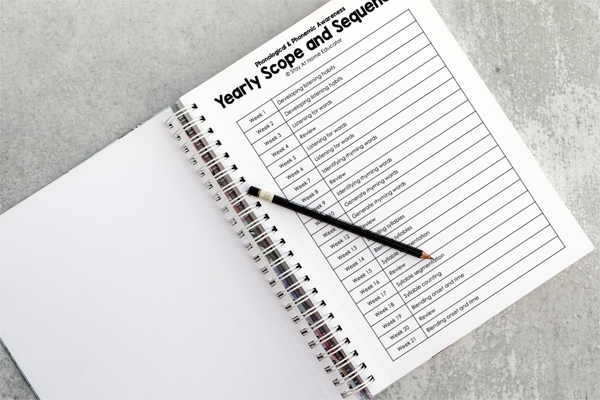
4. Make Reading and Writing Connections
Reading and writing are related in many ways.
That is, reading and writing depend upon many of the same skills, strategies, and knowledge — though those are deployed in different ways in reading and writing.
In fact, about 70% of the variation in reading and writing abilities are shared. For example, decoding and spelling are so closely aligned and learning to both pronounce and spell words simultaneously helps to increase decoding fluency.
And that’s exactly why the Daily Lessons in Preschool Literacy Curriculum also includes weekly alphabet, beginning sounds, and writing centers that parallel the week’s lessons. These are printable centers that reinforce the skills that have been formally taught in the lessons.
And because the program comes with so many centers, teachers and parents differentiate their instruction by choosing the centers that will be most impactful for their students.
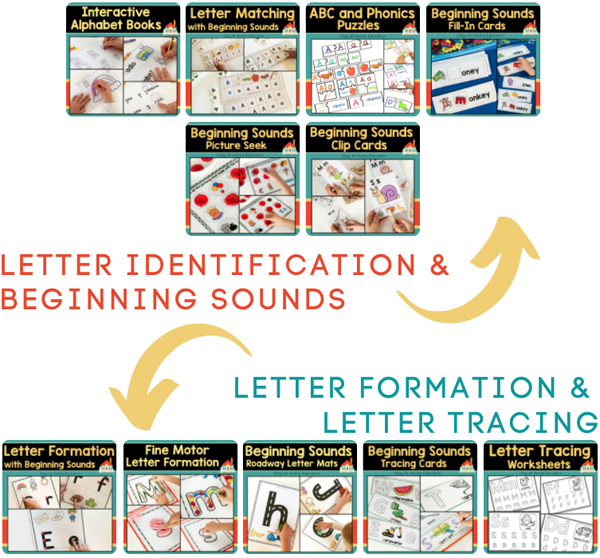
5. Use Appropriate Assessments
Using appropriate assessment is a key component of teaching reading to preschoolers. But the thing is, having your preschooler sit for an hour to be drilled orally is not the best form of assessment. It’s not fun for the preschooler, nor is it the most accurate. Even in such an assessment might spit out a handy printable.
Instead, some of the most valid kinds of assessments come in the form of observation or short and sweet worksheets. Every four weeks in the Daily Lessons in Preschool Literacy Curriculum is a review week. A handful of extra worksheets have been included for review weeks for teachers to use in their assessment portfolios.
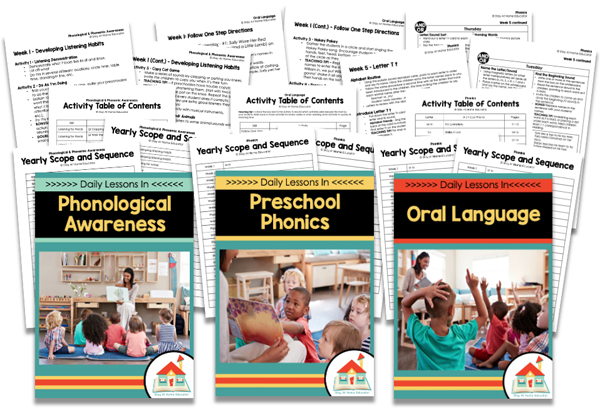
A Comprehensive Preschool Literacy Curriculum
Teaching reading in preschool is a critical part of early childhood education. Children need practice in letters and letter sounds, and well as basic phonics skills, but also oral language and phonological awareness.
The Daily Lessons in Preschool Literacy Curriculum is systematic in skill progression and effective! If fully implemented, this curriculum will have your preschooler ready to read by kindergarten, if not before.
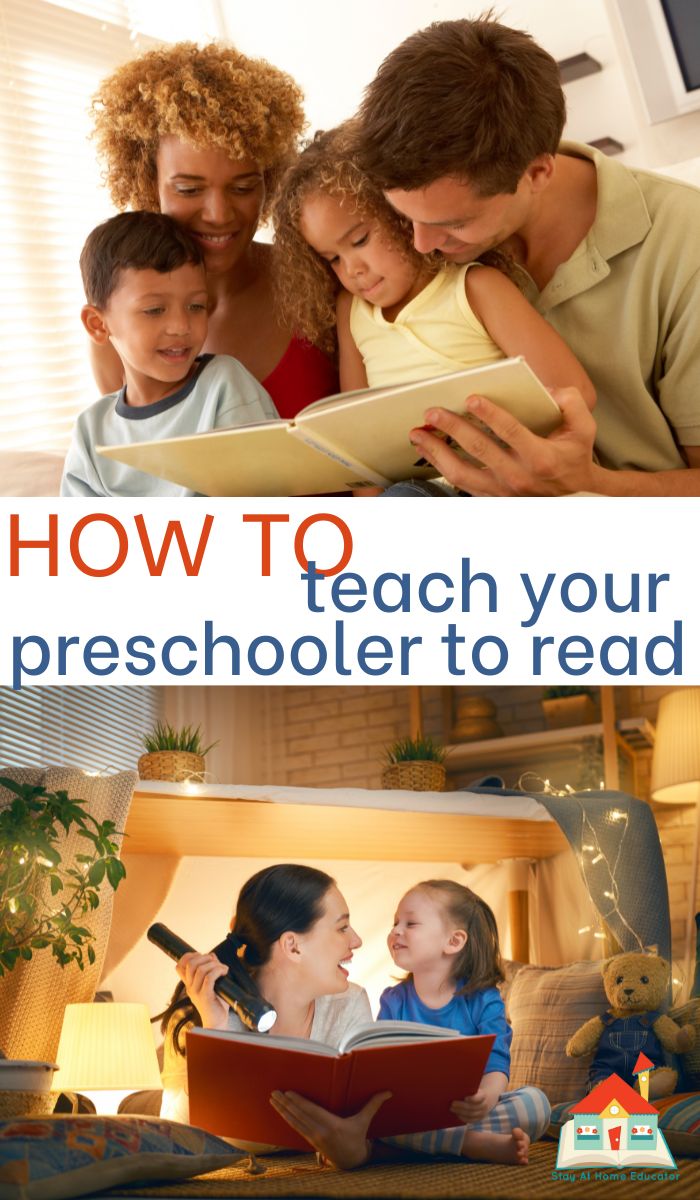

I’m Sarah, an educator turned stay-at-home-mama of five! I’m the owner and creator of Stay At Home Educator, a website about intentional teaching and purposeful learning in the early childhood years. I’ve taught a range of levels, from preschool to college and a little bit of everything in between. Right now my focus is teaching my children and running a preschool from my home. Credentials include: Bachelors in Art, Masters in Curriculum and Instruction.
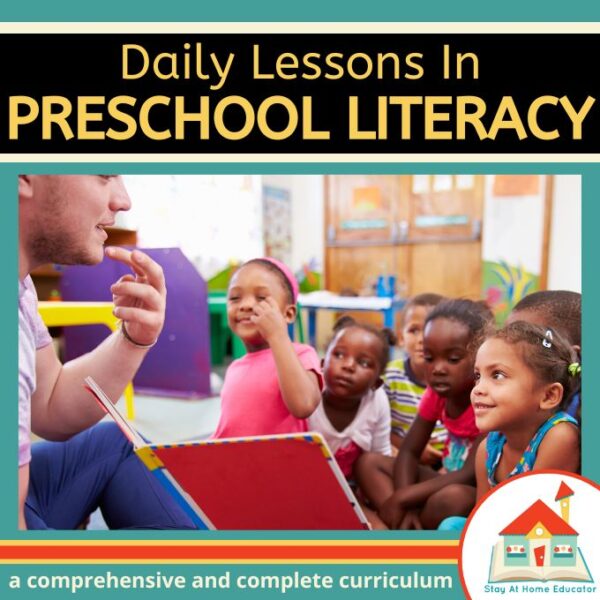

[…] I first started teaching, there was no such thing as resources you could download from the computer and print in your own […]